Letter from Leonard Blakey to Jane Perkins (Draft)

Professor Leonard Blakey writes to Jane Perkins regarding Dickinson's commencement, the political stir behind selecting Professor James Henry Morgan as President Eugene Allen Noble's successor.


Professor Leonard Blakey writes to Jane Perkins regarding Dickinson's commencement, the political stir behind selecting Professor James Henry Morgan as President Eugene Allen Noble's successor.
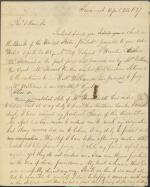
Rev. Samuel B. How writes to Reverend Ashbel Green to settle his accounts and explain that he must leave the pastorate because his wife is sick. "[The] wretched state of Mrs.

Professor Charles F. Himes writes Daniel Gilman, President of Johns Hopkins University, in order to recommend S. Homer Dosh, a senior at Dickinson, for a program at that institution.
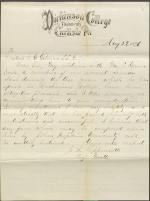
Professor Joshua Lippincott writes Daniel Gilman, President of Johns Hopkins University, in order to recommend S. Homer Dosh, a senior at Dickinson, for a program at that institution.

Dickinson College President James McCauley writes Daniel Gilman, President of Johns Hopkins University, in order to recommend S. Homer Dosh, a senior at Dickinson.

Charles Gardner, a soldier in the United States Army, writes to his sister, Julia Gardner, regarding his daily life stationed at Carlisle Barracks.
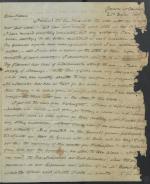
Charles Gardner, a soldier in the United States Army, writes to his mother regarding his daily life stationed at Carlisle Barracks. Gardner mentions his finances, possibilities for advancement in rank, and shares other general news.
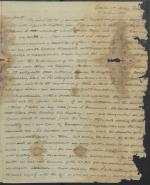
Charles Gardner, a soldier in the United States Army, writes to his parents regarding his journey to his current posting at the Carlisle Barracks.


Former Secretary of the Navy Isaac Toucey writes Nahum Capen to defend a speech that he gave during a rally held in Hartford, Connecticut.

John Goucher thanks Dr. Huekel for sending a copy of Mental Medicine. Transcript included.
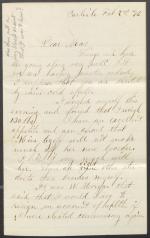
S. Homer Dosh writes to his mother, Mrs. J. H. C. Dosh, about life in Carlisle as a student at Dickinson College.

William Snively writes to J. S. Gordon regarding his experience as a student at Dickinson.

Charles F. Deems, editor of The Watchman, writes to a Mr. Bennett regarding a debt. "After collecting the $16 which you sent last week," Deems explains that Bennett still owes $22.75. Transcript included.
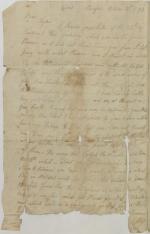
Stephen Johnes writes from Camp Bedford to Lydia Johnes, his wife, about life as a solider in the army assembled to end the Whiskey Rebellion.

Stephen Johnes writes from Carlisle to Lydia Johnes, his wife, about life as a solider in the army assembled to end the Whiskey Rebellion. Johnes mentions a conversation with "Doc.

Professor Charles Dexter Cleveland writes to Alexander Nisbet regarding his feelings for Nisbet's niece, Miss Alison McCoskry.


John W. Yost writes Frank T. Bell and describes his missionary work at a boys school in China as well as asks for financial help to establish scholarships .

Mary M. Dick writes her older brother, a soldier in the Union Army during the Civil War, and shares family news. "Father and the rest are so engaged between the farm and the shop," as Mary explains to Thomas William Dick. Transcript included.

Thomas William Dick writes a letter to his sister describing recent events in his experience as a soldier in the Union Army during the Civil War. "We have passed through another campaign of terrible fighting...
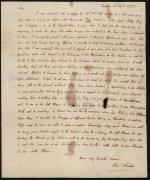
Dickinson College President Charles Nisbet writes to Michael Taney in which he discusses the importance of parental guidance in education and praises the conduct of his son, Roger Brooke Taney. Roger Taney is a member of the class of 1795.

Newspaperman Oliver Worden writes fifteen letters to Eli Slifer, the Secretary of the Commonwealth during the Civil War, in which he requests information on military and political issues for publication in the in the Star and Chronicle.

William F. Wagenseller writes fourteen letters to Eli Slifer, Secretary of the Commonwealth during the Civil War, in which he updates him on the movement of Capt. Ryan's regiment and other companies, appointing Dr. B. F.
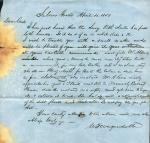
William Wagenseller writes ten letters to Eli Slifer on a number of different topics, including funding a monument for his late brother and recommending his nephew for a position as a doctor in the Union army.